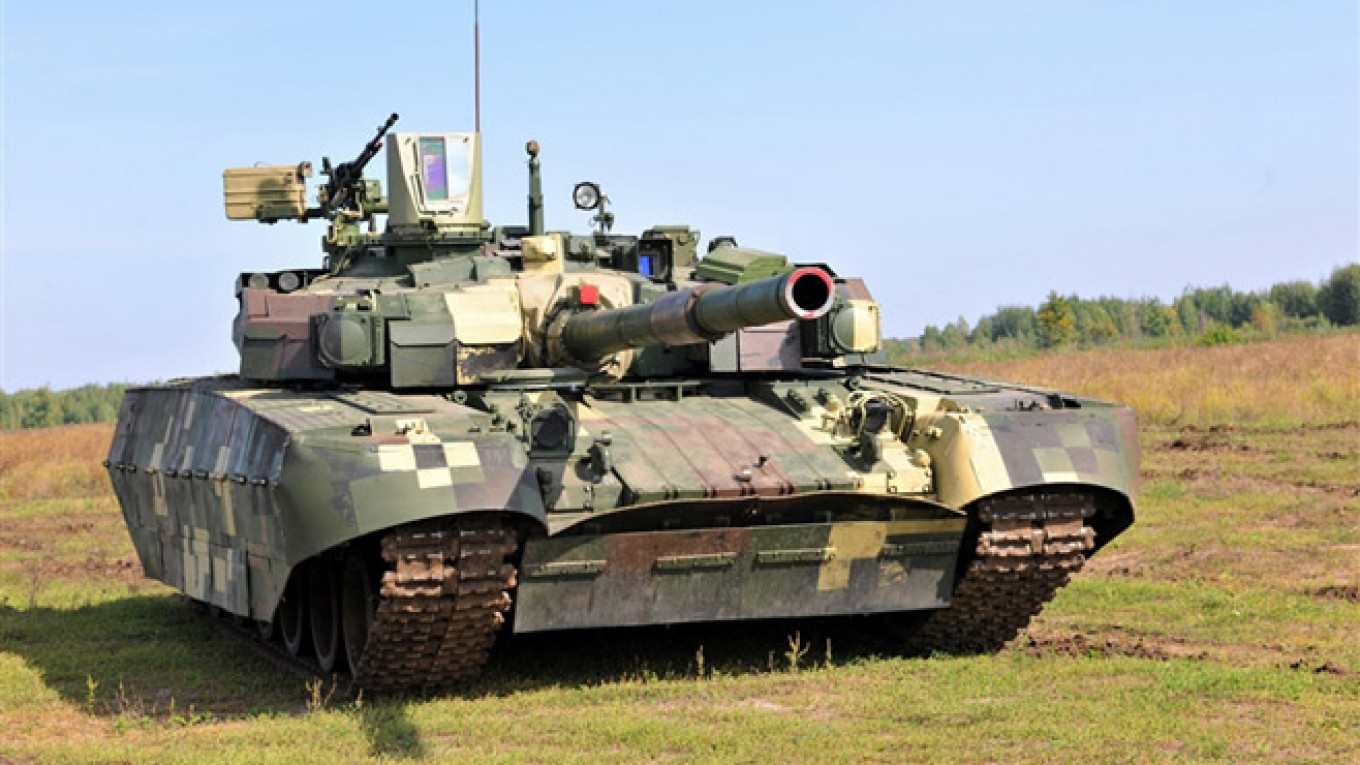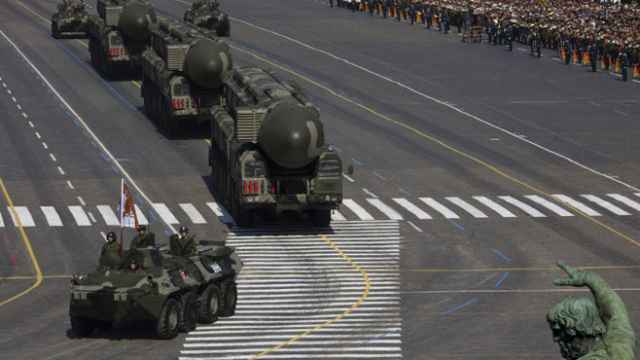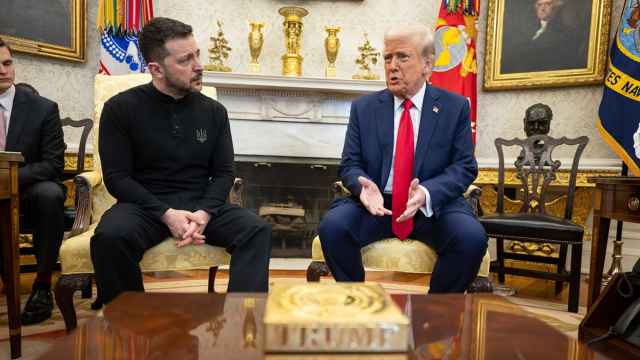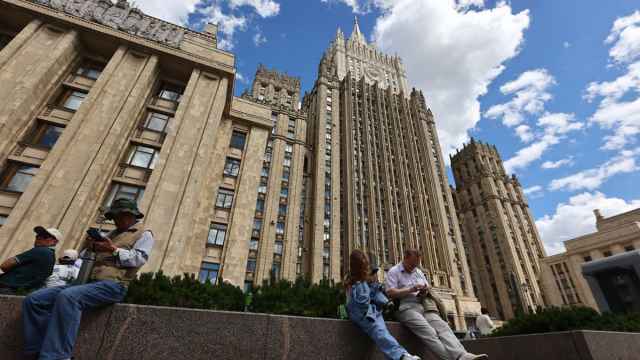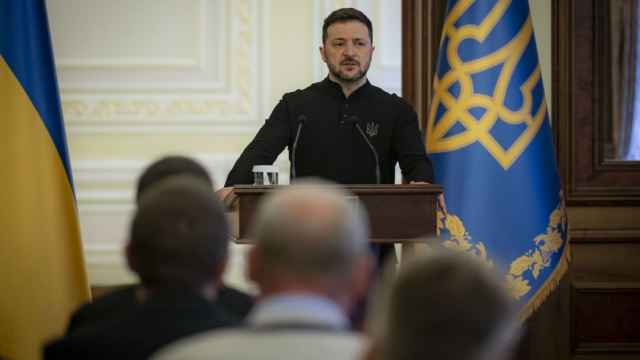As the prospect for a peaceful end to the conflict between rebels in eastern Ukraine and Kiev looks increasingly bleak in the near term, Ukrainian state arms manufacturer UkrOboronProm said Wednesday that it would boost tank production by an unprecedented 2,300 percent in 2016.
T-84 “Oplot” Main Battle Tank
A Ukrainian modernization of the Soviet T-80 tank, the Oplot is a fast-moving and well-armored machine. Its key distinguishing features are a Western-style welded turret, advanced thermal imaging sites and electronic countermeasures. UkrOboronProm says that the Oplot is designed to destroy both ground targets and low-flying aircraft, such as helicopters. It can launch laser-guided anti-air missiles.
Builder: Malyshev Tank Factory in Kharkiv, Ukraine
Weight: 51 tons
Crew: 3
Speed: 70 km/h on paved roads, 45 km/h off-road
Main Weapon: 125mm cannon or NATO-standard 120mm cannon for export models.
Fire rate: up to 8 rounds per minute
Ammunition Capacity: 46 rounds for the main gun
Armor: Nozh Explosive Reactive Armor, which deflects incoming projectiles by exploding outward upon impact.
T-90 Main Battle Tank
Russia's current top-of-the-line combat tank, the T-90 is itself a heavily upgraded version of the famous Soviet T-72 tank. The Russian military halted purchases of the tank in 2011 in anticipation of the upcoming Armata battle tanks, due to be unveiled at the Victory Day parade in May.
Builder: Uralvagonzavod in Nizhny Tagil, Russia.
Weight: 50 tons
Crew: 3
Max speed: 65 km/h on paved roads, 45 km/h off-road
Main Weapon: 125mm cannon
Fire rate: up to 8 rounds per minute
Ammunition capacity: 43 rounds
Armor: Russian-made Kontakt-5 Explosive Reactive Armor
The company's general director, Roman Romanov, was cited in a press release as saying that UkrOboronProm will expand production of its Oplot main battle tanks from five units per year to 120 per year from 2016 onward.
The Oplot MBT, also known as the T-84, is a derivative of the Soviet-era T-80 main battle tank. As such, it has a similar design heritage to the Russian tanks it would ostensibly face off against in the event that the conflict in eastern Ukraine descends into a large-scale ground war with Russia.
Russia has over 2,750 tanks in active service, with more than 18,000 in storage, Radio Free Europe/Radio Liberty reported last year. Meanwhile, Ukraine has 1,150 tanks in service, with a further 1,435 in storage.
UkrOboronProm says it plans on producing 40 Oplot tanks this year, up from the five units originally planned. By 2016, the defense company says it will be rolling 100 to 120 Oplots off the lines per year.
The firm will also boost production of Dozor-B armored cars for use on the front lines in eastern Ukraine. UkrOboronProm further promised in its statement to begin work on a domestic design for aerial drones and counter-battery radar systems — high-tech gear used to locate enemy artillery and rocket batteries.
The company's announcement dovetails with Kiev's increased war footing in recent months, as a fragile cease-fire between the government and rebels has given way to renewed conflict.
Ukrainian President Petro Poroshenko said in December that tank production needed to be increased, and last month he called up 50,000 men for front-line duty against the separatists.
On Tuesday the rebels responded in turn, declaring a mobilization of 100,000 men, although it was not immediately clear how this would be achieved.
Contact the author at m.bodner@imedia.ru
A Message from The Moscow Times:
Dear readers,
We are facing unprecedented challenges. Russia's Prosecutor General's Office has designated The Moscow Times as an "undesirable" organization, criminalizing our work and putting our staff at risk of prosecution. This follows our earlier unjust labeling as a "foreign agent."
These actions are direct attempts to silence independent journalism in Russia. The authorities claim our work "discredits the decisions of the Russian leadership." We see things differently: we strive to provide accurate, unbiased reporting on Russia.
We, the journalists of The Moscow Times, refuse to be silenced. But to continue our work, we need your help.
Your support, no matter how small, makes a world of difference. If you can, please support us monthly starting from just $2. It's quick to set up, and every contribution makes a significant impact.
By supporting The Moscow Times, you're defending open, independent journalism in the face of repression. Thank you for standing with us.
Remind me later.


